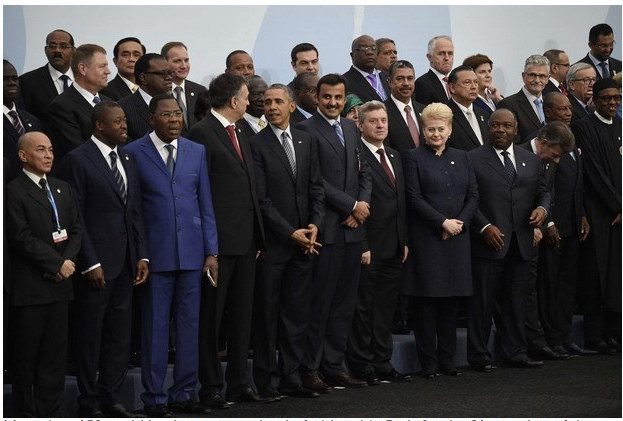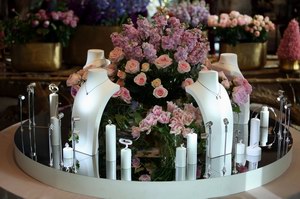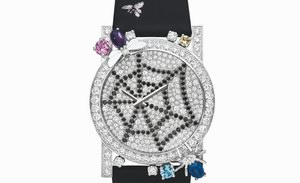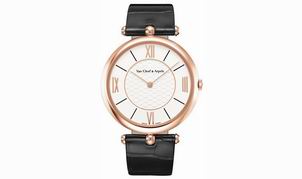Luxury fashion brands are going green. But why are they keeping it a secret?
文章导读
Luxury fashion brands are going green. But why are they keeping it a secret。The quiet changes at Kering and LVMH are laudable, experts say. But with its rapt audience of tastemakers and innovators — and its unique ability to create markets where none existed — luxury could do so much more.

More than 150 world leaders are meeting in fashionable Paris for the 21st session of the Conference of the Parties to the United Nations Framework Convention on Climate Change. (Martin Bureau/AFP/Getty Images)
Paris — ground zero for luxury fashion — is serving as host to theUnited Nations Conference on Climate Change. Kering executives are sitting on multiple panels, while LVMH, a corporate sponsor of the conference, is firing off email blasts to its employees on “green” lessons learned.
“Sustainability” — maintaining a diverse bio-system while eliminating waste and pollution and decreasing energy consumption — is a hot topic in fashion, from Seventh Avenue to Europe. But it poses conundrums. Is it better for a Paris-based fashion company to use virgin paper produced in France for its runway show invitations? Or recycled paper from China? Can they just skip the fancy card stock and send evites?
Fashion schools are working a keener understanding of carbon footprints into their curriculums. There are green fashion contests challenging designers to make clothes that are both red-carpet glamourous and good for the planet. Countless brands now declare themselves eco-friendly, which can mean anything from using organic cotton in T-shirts to using solar power to heat their headquarters. Most are sportswear labels that lead with their self-declared “green” credentials rather than aesthetics; or hardy activewear companies, such as Patagonia, which offer handbooks for repairing — instead of replacing — damaged clothes.
But on the whole, green fashion is typically seen as “other.”
At the top of the fashion pyramid sit the luxury brands. In grand corporate offices, their executives speak of carbon credits, “cradle-to-cradle” supply chains and the exigency of preserving natural capital — the extravagant raw materials such as unmarred leather hides and long-fiber cotton on which their products rely.
These companies have natural eco-advantages over their mass-market rivals. They control more of their supply chain, such as tanneries. They have the resources to develop new production techniques. They tout the heirloom nature of their products, not their disposability. And their customers are less price-sensitive: Who’s counting pennies when spending thousands of dollars on a handbag?
“I honestly think the brands are doing what they’re doing because they think it’s good business” — a way to preserve the quality of the natural resources they rely upon, says Gemma Cranston, of the Cambridge Institute for Sustainability Leadership, which has worked with Kering and Hugo Boss. “They just see it as a step they now need to take to continue to produce high-quality garments.”
关键词: Kering | LVMH | Gucci | Luxury brands | fashion brands
免责声明:
本文仅代表作者/企业观点,与【风尚中国】无关。其原创性以及文中陈述文字和内容未经本站证实,对本文以及其中全部或者部分内容、文字的真实性、完整性、及时性本站不作任何保证或承诺,仅供读者参考,并自行核实相关内容。
【风尚中国】刊载此文出于传递更多信息之目的,并不意味着赞同其观点或证实其描述,也不代表本网对其真实性负责。
如因作品内容、版权和其它问题需要同本网联系的,请在30日内进行;新闻纠错: edit#fengsung.com








